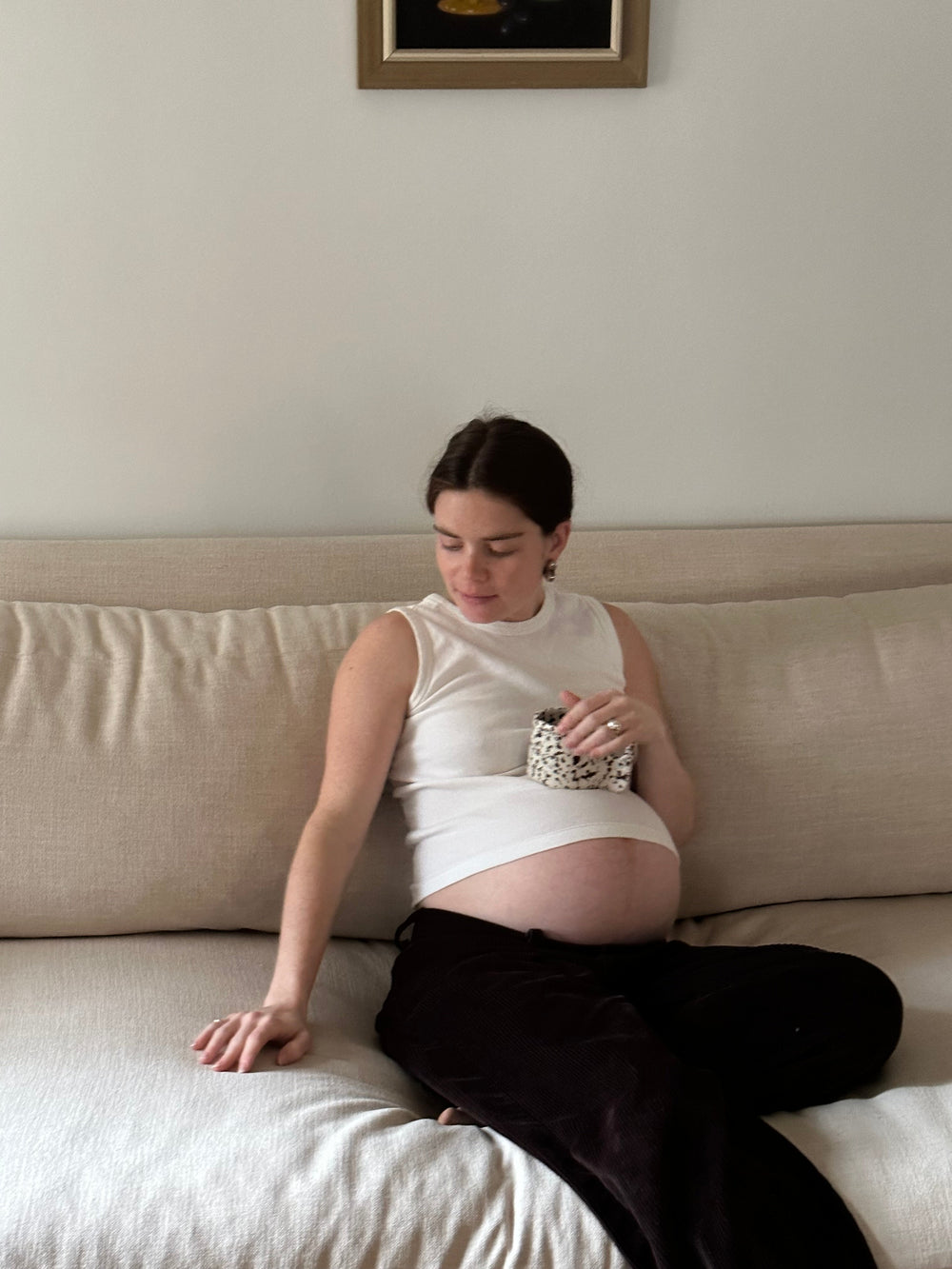Wherever you are in your pregnancy journey, you’re probably hoping to keep your nutrition plan and your beauty routine as clean as possible. But as you start to dig deeper into the lists of potentially harmful ingredients, the idea of a truly non-toxic pregnancy may feel like an uphill battle. There’s a ton of info to sift through—which can seem doubly daunting when you’re dealing with pregnancy brain and first-trimester fatigue. So how can you tell if your go-to foods, supplements, and products are safe for pregnancy?
To help take some of the stress out of the pregnancy planning process, we’ve done the legwork and compiled a list of ingredients to avoid during pregnancy. Here’s what you need to know.
Ingredients to Avoid in Your Diet During Pregnancy
You and your doctor may have already discussed foods to avoid during pregnancy, including high-mercury fish and any foods with a high contamination risk (like deli meats, raw meat, and unpasteurized dairy). Experts also recommend avoiding alcohol during pregnancy1 and keeping caffeine intake below 200 mg per day.2
But there are a few lesser-known ingredients you may also want to limit during pregnancy. These are often hiding in the ingredient lists of processed and packaged foods, so read nutrition labels carefully and try to limit foods that contain the ingredients below.
Additives and preservatives
Food additives and preservatives are generally recognized as safe by the FDA. But research suggests they may have a negative impact on children’s health, so you may want to limit your intake.3 Some commonly found additives and preservatives include:
- Ammonium phosphatides
- Ascorbyl palmitate
- Dicalcium phosphate
- Maltodextrin
- Magnesium silicate
- Magnesium stearate
- Nitrates and nitrites
- Potassium benzoate
- Propylene glycol
- Sodium ascorbate
- Sodium benzoate
- Sodium ferrocyanide
- Titanium dioxide
Artificial sweeteners and sugar alcohols
According to the American Pregnancy Association, these artificial sweeteners are not safe during pregnancy:4
- Saccharin
- Cyclamate
Sugar alcohols are considered safe in moderation, but they may cause digestive discomfort and increase your long-term risk of developing certain heart conditions.5 These include:
- Sorbitol
- Xylitol
- Mannitol
- Erythritol
- Maltitol
- Isomalt
Unhealthy fats
While healthy fats such as omega-3 fatty acids are vital for a healthy pregnancy, certain types of fats should be limited or avoided during pregnancy. These include:
- Trans fats and hydrogenated oils
- Saturated fats
- Solid fats
Artificial Colors & Dyes
Some animal studies suggest that prenatal exposure to food coloring may affect cognition and behavior in offspring.6 While more human studies are needed, you may want to limit your intake of food dyes while pregnant.
Beauty Ingredients to Avoid During Pregnancy
In addition to keeping a close eye on the ingredients in your food, it’s also important to pay attention to what you’re putting on your body. Certain personal care and beauty products could potentially be a source of exposure to toxins.7 Limiting exposure to these environmental toxins can play a role in creating a safe and healthy pregnancy for you and your baby.
Hold off on using beauty products that contain the following:
- Phthalates. Research suggests that exposure to phthalates during pregnancy may be linked to language delays8 and adverse effects on motor skills9 in children.
- Parabens. Commonly found in skin care and hair care products, these chemicals may interfere with normal hormone function. Research suggests parabens may be linked to reproductive issues such as decreased fertility, preterm birth, and low birth weight.10
- Triclosan. This antimicrobial chemical is considered an endocrine disruptor, and some research suggests that exposure during pregnancy may affect birth outcomes, including birth weight and gestational age.11
- Oxybenzone. This endocrine-disrupting chemical found in some sunscreens can pass through the skin barrier and placenta.12 More research is needed to determine whether this may have any adverse effects on your baby, but for now, the American College of Obstetricians and Gynecologists (ACOG) recommends avoiding products with this ingredient.13
- Fragrance. Companies aren’t required to list which specific chemicals were used to make their fragrances — and some, like phthalates and styrene, may be harmful.14 Opt for fragrance-free products during pregnancy.
- Retinoids. Oral retinoids have been linked to birth defects. While it’s still unclear whether topical retinoids carry the same risk, they can be absorbed through the skin — so you may want to play it safe and find an alternate skincare option while pregnant.15
Ready to kickstart your non-toxic pregnancy journey? Add a research-backed, OB/GYN-approved prenatal to your daily routine to support you and your growing baby. Read next: how to build your pregnancy skincare routine.
This article is for informational purposes only. It is not, nor is it intended to be, a substitute for professional medical advice, diagnosis, or treatment and we recommend that you always consult with your healthcare provider. To the extent that this article features the advice of physicians or medical practitioners, the views expressed are the views of the cited expert and do not necessarily represent the views of Perelel.



















